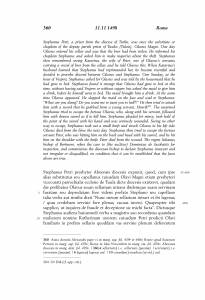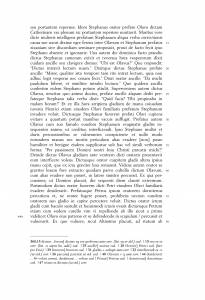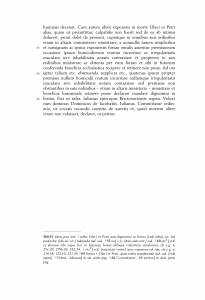
DF 6831

Julianus, penitentiarians regens, biskop av Bertinoro
Stephanus Petri, a priest from the diocese of Turku, was once the substitute or chaplain of the deputy parish priest of Tuulos (Tulois), Olavus Magni. One day Olavus entered his cellar and saw that the beer had been stolen. He informed his chaplain Stephanus and asked him to make inquiries about the theft. Stephanus then remembered seeing Katarina, the wife of Peter, one of Olavus’s servants, carrying a vessel of beer from the cellar, and he told Olavus this. When Katarina’s husband learned that Stephanus had reprimanded her, he became resentful and decided to provoke discord between Olavus and Stephanus. One Sunday, at the hour of Vespers, Stephanus asked for Olavus and was told by the housemaid that he had gone to bed. Stephanus found it strange that Olavus had gone to bed at this time, without having said Vespers or without supper, but asked the maid to give him a drink, before he himself went to bed. The maid brought him a drink. At the same time Olavus appeared. He slapped the maid on the face and said to Stephanus: “What are you doing? Do you want me to toast you to hell?!” He then tried to attack him with a sword that he grabbed from a young servant, Henrik. The unarmed Stephanus tried to escape the furious Olavus, who, along with his servant, followed him with drawn sword as if to kill him. Stephanus pleaded for mercy, took hold of the point of the sword with his hand and was seriously wounded. Seeing no other way to escape, Stephanus took out a small knife and struck Olavus in his left side. Olavus died from the blow the next day. Stephanus then tried to escape the furious servant Peter, who was hitting him on the back and head with his sword, and he hit him on the shoulder with the knife. Peter died from the wound. The regent Julianus, bishop of Bertinoro, refers the case to (the auditor) Dominicus de Jacobatiis for inspection, and commissions the diocesan bishop to declare Stephanus innocent and not irregular or disqualified, on condition that it can be established that the facts above are true.




